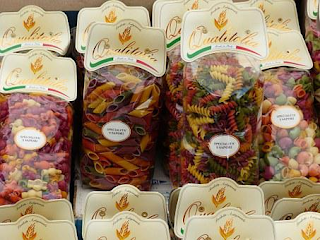606

Researchers at Rutgers University, in the U.S., have developed a plant-based biodegradable coating or food wrap that can protect edibles against pathogens. This can reduce the use of plastic packaging materials on food and prevent humans from its harmful effects.
Image Credits: Pixabay
“We knew we needed to get rid of the petroleum-based food packaging that is out there and replace it with something more sustainable, biodegradable and nontoxic,” said Philip Demokritou, director of the Nanoscience and Advanced Materials Research Center. “And we asked ourselves at the same time, ‘Can we design food packaging with a functionality to extend shelf life and reduce food waste while enhancing food safety?”’
The making of the food wrap
Researchers used a new packaging technology, focused rotary jet spinning, that converts polysaccharide/biopolymer-based fibres into a solid wrap. The fibres produced using this process can be degraded in the soil within three days and can increase the shelf life of food. They are released from a heating device that looks like a hair dryer and can be spun over edible items of any size and shape. They prevent them from getting spoiled due to a microbial attack such as listeria or E.coli.
“What we have come up with is a scalable technology, which enables us to turn biopolymers, which can be derived as part of a circular economy from food waste, into smart fibres that can wrap food directly. This is part of a new generation, ‘smart’ and ‘green’ food packaging,” said Demokritou.
The biopolymers are extracted from naturally occurring antibiotic substances, such as citric acid, nisin and thyme oil. Researchers can program such materials to act as sensors which can activate and destroy bacteria entering the food. This can reduce health problems due to food-borne diseases and chances of food spoilage. Further, the new packaging can solve a serious environmental issue of the proliferation of petroleum-based plastic goods in the waste stream. Efforts like decreasing the distribution of plastic bags at shopping stores can help control the use of plastic.
“I’m not against plastics,” said Demokritou. “I’m against petroleum-based plastics that we keep throwing out there because only a tiny portion of them can be recycled. Over the past 50 to 60 years, during the Age of Plastic, we’ve placed 6 billion metric tons of plastic waste into our environment. They are out there degrading slowly. And these tiny fragments are making it into the water we drink, the food we eat, and the air we breathe.”
The research has been published in the journal Nature Food.
Follow us on Medium!

